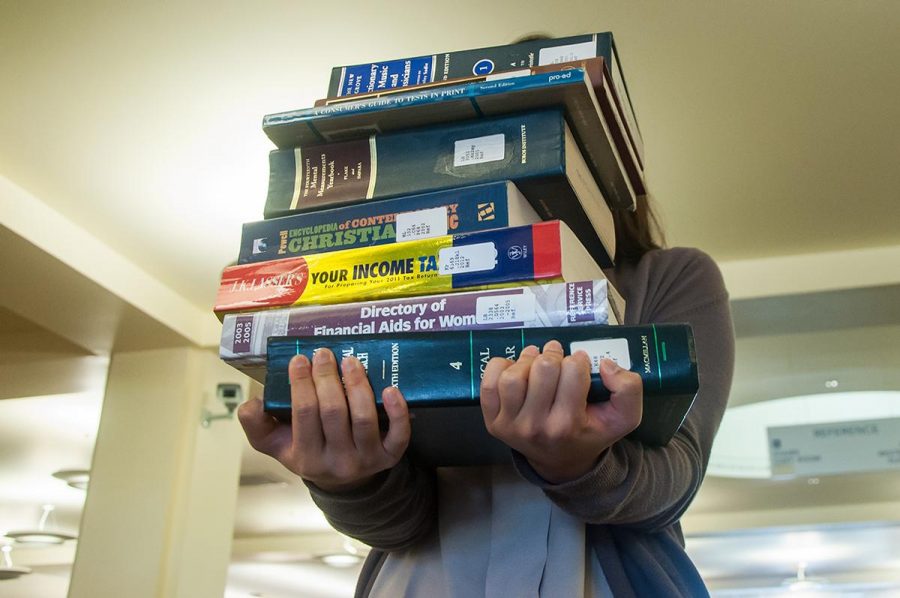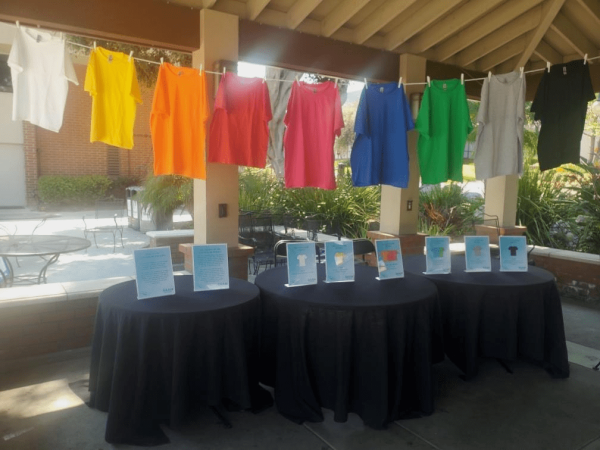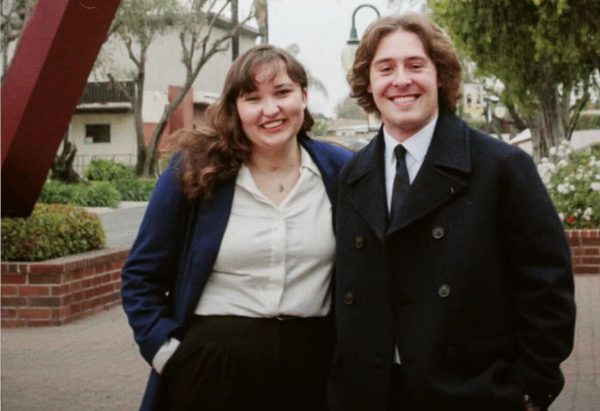Students pay less library fines
E-books play a key role in why Biola Library collects less in fines in recent years.
E-books play a key role in why Biola Library collects less in fines in recent years. | Cherri Yoon/THE CHIMES
November 18, 2014
Updated: Nov. 20 at 7:50 p.m.
Revenue from overdue book charges has decreased at Biola’s Library, partially due to online payment options.
The fines, are categorized into three separate categories of overdue, replacement and damaged, late fines gather less than $20,000 each year staying consistent, said April Ray, circulation supervisor at Biola’s library, though not all of the fees come from students alone. For $100 a year, La Mirada residents can have access to Biola’s library and check out materials with a few restrictions, including a limit that is less than Biola students’.
Most of the books that rack up fines are books about the Bible, which the library owns the most of, Ray said. For every day past a book’s overdue date, the student’s account will receive a 25 cent charge. After 30 days, the book will be considered lost and the cost of the book is charged to the responsible person’s account.
REDUCED REVENUE
In 2011, the library made just over $18,000 from fines but in 2013, total revenue ended up over $13,500. At present, the library’s revenue sits at a little over $11,000. Most of the money comes from Biola students, since they frequent the library most often.
“Most of the time it’s something like they spilled coffee on the book,” said Ray. “There’s been a few times where a dog, or an animal has gotten ahold of it and it’s very obvious because you can see the teeth marks.”
Ray believes revenue has decreased because of the convenience paying fines online and the popularity of e-books. In 2011, the library began accepting credit card payments, and in 2014 they allowed online payments.
“It’s less likely that a fine’s going to go over 30 days and have the extra processing fees involved,” said Ray.
Should a book become damaged or lost to the point of needing replacement, the cost of the book and extra processing fees are charged to the student’s account. After 30 days, the fee is charged to the student’s my.biola account. As an alternative payment offered around the holiday season, students can give canned items to the library to pay off their fines through the Food for Fines program. Each can is worth a dollar toward fines with a limit of ten dollars.
“The default [replacement charge] is $85 and that includes the cost of the book plus processing fees but it really depends on the book. Some could be more, some could be less,” said Ray.
INTANGIBLE ISSUES
With the introduction of e-books and e-journals, the library has expanded the amount of materials in their database. In 2010, the amount of e-books in the library’s system totaled 82,574, but as of last year they totaled 347,215. Without something physical, it is impossible to damage or even lose it, Ray said.
“There’s a general decrease of people actually checking out books,” Ray said. “Most people need a reminder to bring things back.”
After a book becomes overdue for more than 30 days, the borrower will receive notices three weeks before finally, a fine gets posted for the book’s replacement.
“We usually get 60 percent of the books we send for replacement back,” Ray said.







